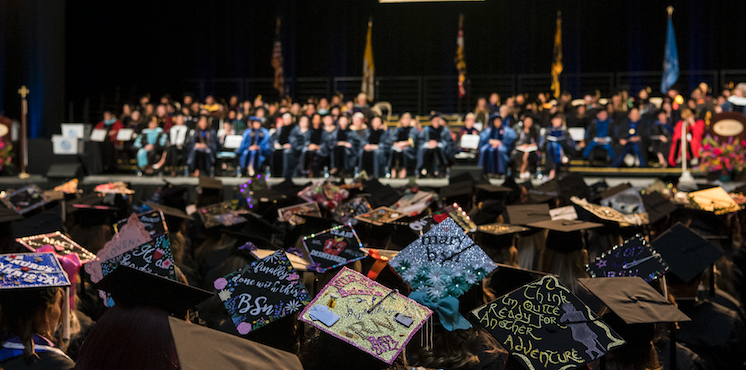When Traditions and Big Plans Change Due to COVID-19, How Do We Deal?

For students and families, this time of year brings annual traditions and some of life’s milestones such as proms, banquets, award ceremonies, graduations, and parties. These traditions, anticipated and planned for, sometimes for months or even years in advance, are a shared source of pride, excitement and celebration, offering rites of passage and hard-earned recognition for accomplishments.
However, in 2020, the global COVID pandemic prevents these traditions from being experienced in their traditional manner and could possibly affect how these traditions are experienced through 2021.
While this is a disappointment for many, and families and friends mourn the traditions their loved ones will miss, schools and families can use creativity and technology to create a positive outcome and experience that may not replace the missed tradition but still celebrates and recognizes hard-earned accomplishments.
More importantly, family and friends should not assume or claim to understand how these lost traditions may be affecting their student.
Notre Dame of Maryland University’s (NDMU) psychology professor and department chair, Dr. Maria Mouratidis, says there are going to be a range of responses to COVID-related impacts, and while rituals are important, they can mean different things to different people. The cancellation of graduation could be a relief to the timid high schooler who was suffering anxiety over the thought of crossing the stage. For a college student, the COVID pandemic could trigger more fear regarding her future than sadness for missed traditions.
Additionally, a child or young adult’s daily life has changed – not only is school interrupted, but so is there home life. For many students, there isn’t time to think about what is being missed because they are helping take care of siblings, adjusting to online learning, or struggling with other challenges such as digital access or economic effects if a parent has lost their job.
“Younger people take cues from others. Be careful to not project your feelings onto others,” says Mouratidis. “Be curious. Avoid closed-ended questions or statements such as ‘You must feel so angry’. Instead ask your loved one, ‘What is this like for you?’”
Families should take this opportunity to make new traditions, and to consider the life skills learned from this experience. Resiliency is one skill everyone is developing during this COVID experience, discovering new ways to learn, communicate and live.
Though the lost traditions are disappointing for parents, it may not be as important to the student. The fear of the future could be weighing more on the student – how will this affect the start of college? Grad school? Job prospects?
Jessie Willinghan is a graduating senior at NDMU and is facing the reality of not celebrating her finishing up her undergraduate degree in the way she expected it. “These past four years, I have dedicated an immense amount of my time and energy to the Morrissy Honors Program,” says Willinghan. “Of the accomplishments that I am most proud of during my time at Notre Dame, graduating as a Morrissy Scholar is, by far, number one (thing I was looking forward to).”
She adds it’s not easy to look back on photos from last year of her classmates who graduated in 2019, “I remember thinking, “that will be me next year,” but it’s not. Not being able to celebrate these milestones with the people who matter to me has been disappointing.”
Mouratidis says that even though it may not feel this way at the present moment but challenges similar to this pandemic have moments that help us grow. “A Chinese philosopher said, ‘That which does not bend, breaks,’ Dealing with uncertainty is a life-skill. This experience can teach our students how to be agile, resilient, flexible and creative. When our expectations don’t confine us, we have more options,” she says.




